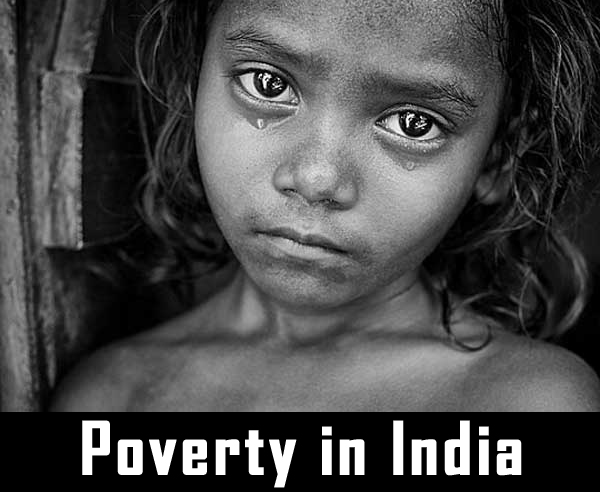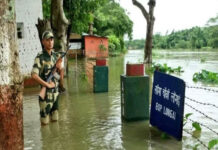At present, 28.5% of the Indian population lives below the poverty line. In the category of poor falls the people whose daily income is less than 33 rupees a day in cities and 27 rupees a day in villages. But do you think this amount is enough to survive even for a day in the country where every food item is available at sky-high prices? This means, the actual number of people living below the poverty line is much higher, as according to the statistical data, anyone earning 40 rupees won’t be considered as poor but must be facing the same difficulties in life.
Household expenditure is considered to calculate the poverty count in India. In this purchasing power of people for buying food and buying capacity for some non-food items is calculated. Though the condition in cities is more or less the same but the rural welfare programs have really helped the people in rural India. These efforts resulted in decrease in the poverty in rural India at faster pace than their urban counterparts.
Facts on Poverty in India
Who comes in the category of the poorest class in India? – Tribal people, Dalits and labour class including farm workers in villages and casual workers in cities are still very poor and make the poorest class in India.
Where do the majority of poor live in India? – 60% of the poor still reside in the states of Bihar, Jharkhand, Odisha, Madhya Pradesh, Chattisgarh, Uttar Pradesh and Uttarakhand. The reason for these states to be in the category of the poorest state is because 85% of tribal people live there. Also, most of these regions are either flood-prone or suffer from calamities. These conditions hamper agriculture to a great extent, on which the household income of these people depends.
According to the recent Global Hunger Index Report 2012 by the International Food Research Institute, India ranks 97th in Global Hunger Index. Though there is no shortage of food production in India, our nation still has the highest percentage of underweight children under five. India is working hard to become a superpower in 2020, but what about these poor in India as our nation still lags behind in improving GHI.
India at present has a greater share of the poor around the world. Thirty years ago, India was home to one-fifth of world’s poor but now it is a home to one-third of poor people. This means we now have more poor in India as compared to thirty years ago.
According to a 2011 poverty Development Goals Report, poverty in India is expected to drop by 22% in 2015.
Causes of Poverty in India
High population growth rate is one of major reasons of poverty in India. This further leads to high level of illiteracy, poor health care facilities and lack of access to financial resources. Also, high population growth affects the per capita income and makes per capita income even lower. It is expected that population in India will reach 1.5 billion by 2026 and then India will be the largest nation in the world. But India’s economy is not growing at the same pace. This means shortage of jobs. For this much population, near about 20 million new jobs would be required. Number of poor will keep on increasing if such a big number of jobs won’t be created.
Ever increasing prices of even basic commodities is another reason of poverty. A person below the poverty line finds it difficult to survive. Caste system and unequal distribution of income and resources is another reason of poverty in India.
Apart from all these, unskilled workers are paid very low in spite of hard work they put daily. The problem lies with the unorganized sector as owners do not bother the way their workers live and the amount they earn. Their area of concern is just cost-cutting and more profit. Because of the number of workers looking for a job is higher than the jobs available, unskilled workers have no other option but to work for less money. The government should really find a way to impose minimum wage standards for these workers. At the same time, the government should ensure that this is implemented well.
Poverty must be eradicated from India as every person has the right to live a healthy life.


















































